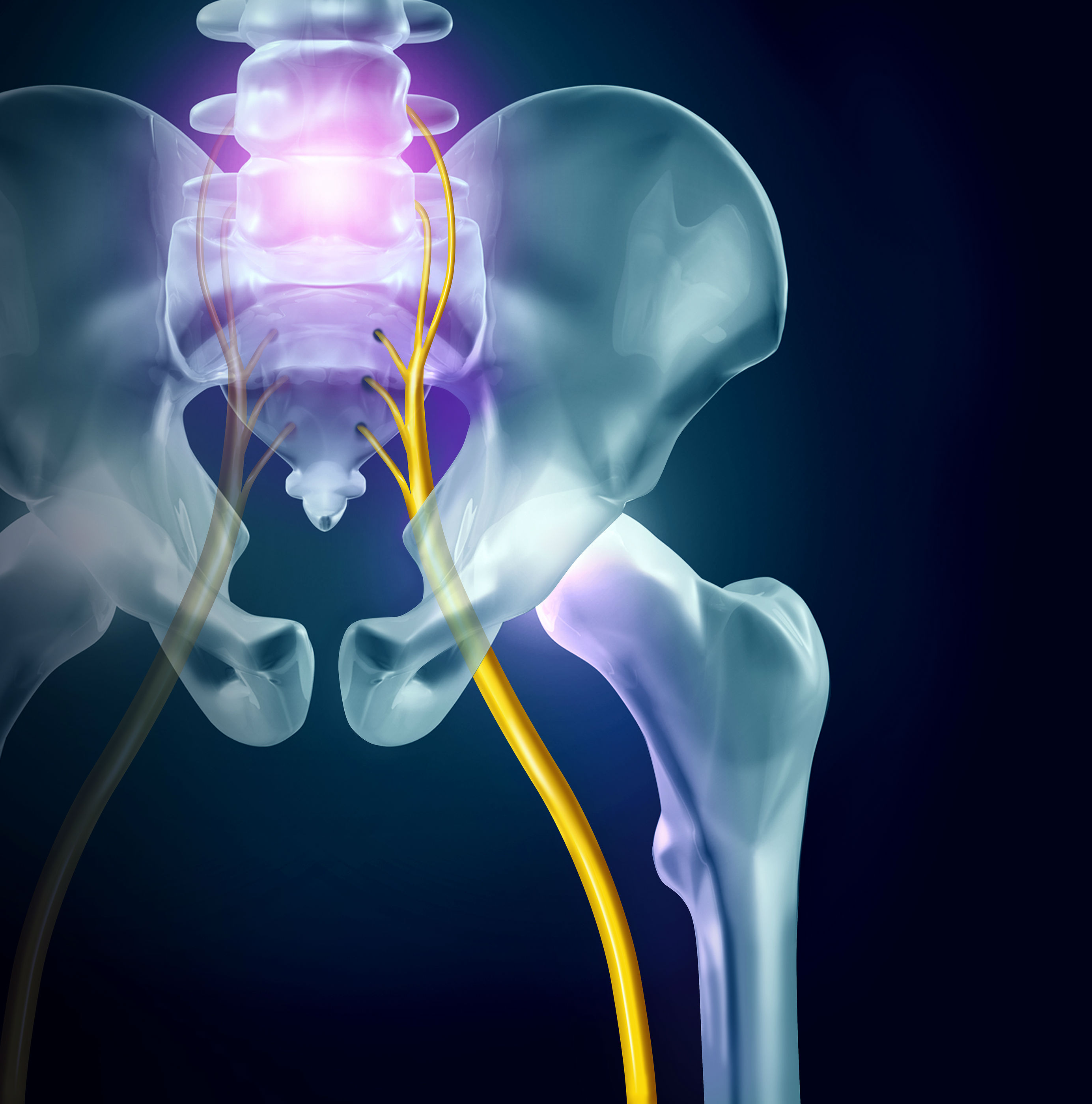
Sciatica is an extremely painful condition, causing thousands to seek out sciatica stretches, medication, and treatment every year. If you are one of the many who suffer from sciatica, however, you may not be aware of what causes it. Several issues can cause pain in the sciatic nerve and understanding them can help you find the treatment you need.
Herniated disk
A herniated disk is the most commonly known cause of sciatica. It is also known as a slipped disc or a ruptured disc.
Your spine has discs of tissue that are set between your vertebrae. They have a soft center, with a consistency like jelly. These provide cushioning for the bones. There are a number of reasons behind the possible degeneration of your discs, with age often being a factor.
If a disc ruptures, the soft center can leak out. This puts pressure on the nerve. If it affects the sciatic nerve, which runs from your lower back down through the buttocks into the leg, it causes sciatica.
Bulging disk
A bulging disk is sometimes confused with a herniated disc, although they are not the same. A bulging disc has not ruptured, and so there is no leak. However, it has moved out of place and can place pressure on the sciatic nerve.
A bulging disc may not cause as much pain as a herniated disc. However, it can still cause sciatica.
Bone spur
A bone spur is a growth or projection that forms on one of your bones, often in the area of a joint. They are also known as osteophytes.
They can occur in various places around the body. If they occur on the spine, they can squeeze the sciatic nerve and cause sciatica.
Lumbar spinal stenosis
This condition affects the spinal canal. Spinal stenosis means that the space around the nerve has narrowed and can occur at any point along your spine.
This places pressure on the nerve and causes pain, tingling, or numbness. If this occurs in the lower back, it can affect the sciatic nerve.
Piriformis syndrome
Piriformis syndrome does not affect the spine, but rather the muscles. However, because the pain is felt in the sciatic nerve, sciatica is considered a symptom of the condition.
The condition affects your piriformis muscle, which is found in the buttocks. If this muscle spasms, it can irritate the sciatic nerve and cause pain.
Spondylolisthesis
This means that one of your vertebrae has slipped out of position. The bone can irritate your sciatic nerve, in a similar manner to a disk that is out of place. The bone rests on the vertebra directly below it, which can be extremely painful.
Tumors
A tumor on your spine can place pressure on your nerves and potentially cause sciatica. This may occur regardless of whether the tumors are benign. This is not a very common cause of sciatica.

Injury
Trauma to your lower back muscles, buttocks, pelvis, or thigh could cause sciatica if the sciatic nerve is affected. This can occur as a result of a fracture, a laceration, a contusion, or another type of injury.
The injury might be to the area surrounding the sciatic nerve, resulting in sciatica. It might also be trauma directly to the nerve.
Poor posture
Poor posture can contribute to sciatica, as it causes additional strain to be placed on your spine. This can mean poor posture when sitting or when performing frequently repeated actions.
Obesity
Additional weight can put you at greater risk of sciatica. Obesity does not cause sciatica itself, but it can directly contribute to the possibility of the conditions mentioned above.
For example, if there is additional pressure placed on your spine, you may be more affected by a herniated or bulging disk. An inactive lifestyle may also affect your posture, as your core muscles are likely to be weaker.


